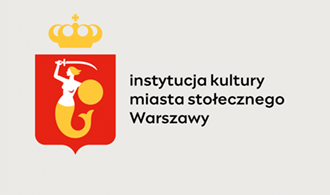We interviewed Kamilė Gudmonaitė, the author of the installation “I dreamt, I dreamt”, with which the artist wanted to tell the stories of prisoners convicted of murder, as well as the testimonies of the families of their victims.
Do you think the lack of a picture will make the reception more intense?
Yes, the lack of image is the main concept of this performance. There are a few reasons I chose to present the performance in total darkness: when I started thinking about the concept of the performance, the darkness was the first and strongest image that came to my mind while talking with prisoners since it was the way I felt visiting prison and trying to dig into their lives: for many days I was feeling like there is no exit, it is not clear when everything ends and you are floating in the space without any answer. Also, while prisoners are sitting in their 7sq.meters cell and looking in front of them to the wall, after many hours they start to see images on the wall and this phenomenon is called “prisoner cinema”. In the darkness after some time you might also start to see different things, that’s even a question whether there is pure darkness. Also, in some cultures it is the way to become a shaman: children or teenagers go into the dark room or cave for many days or even weeks and after this experience they get out initiated to be the healer of the community.
How did you talk to the inmate and the victims’ families? It must have been exhausting for you.
After one year of communicating with prisoners you get close to them, start to feel empathy and simply become friends. And when I started meeting victims, it got difficult to contain all this situation and understand how much unrealised pain in our societies we have. I understood that the space that lies between some people is unsolvable & unimaginable. That there are some questions that might not be answered and some situations that might not be resolved and it’s not so easy to ask for forgiveness and to forgive. We are not really sure what does it mean to forgive. All these questions are there – in the audio performance.
Where did the idea for this project come from?
Some years ago before I started this project, I had a concert in Lukiškės prison (I play in a band as well) and also we presented a performance there – Timon of Athens by Shakespeare. The audience was prisoners. I had some time to talk with them after these events and once I started discussing the topics and ideas that Shakespeare put in the play with one prisoner and I caught myself looking at the little card hanging on the chest of the person. It was written „Sentenced for life“. I immediatly got frightened by this person and our conversation suddenly changed. I then realised how much prejudices I have – that the card with some words might change my point of view about the person I am now talking to. So I started wondering could I break my own prejudices and at least try to enter my own inner space I am afraid to go. I always see it as a part of healing: going to the places you would like to hide at the first place. It is interesting that Lukiškės prison was built in 1907 and for more than a hundred years it has been situated in the very central part of the capital Vilnius. The locals always wanted to pass around this place, but still you couldn’t, since it is in the centre. For me it is like the subconscious of our city – like a black hole that no one wants to go there but it still takes the very central part of you. Since the conditions in the prison were pretty terrible and the prison is one of the oldest in Eastern Europe, few years ago the prisoners finally were sent to the other places in Lithuania and the prison was closed.
Is there a story which you heard threw this project that you remember particularly well?
One prisoner shared this story that is still on my mind: he was sitting at the bar drinking one beer after another and there was a telephone on the table. He wanted to take the phone, call to someone close and tell: “You are right, I need help”. But he didn’t do that, and actually the very same evening he went out to the street and killed two people. After sharing this story, he said that now he understands that if at that particular moment he have had admitted that he suffers, maybe he wouldn’t have done this terrible thing. So I guess seeing and admitting where YOU ARE at the moment may save lives.
